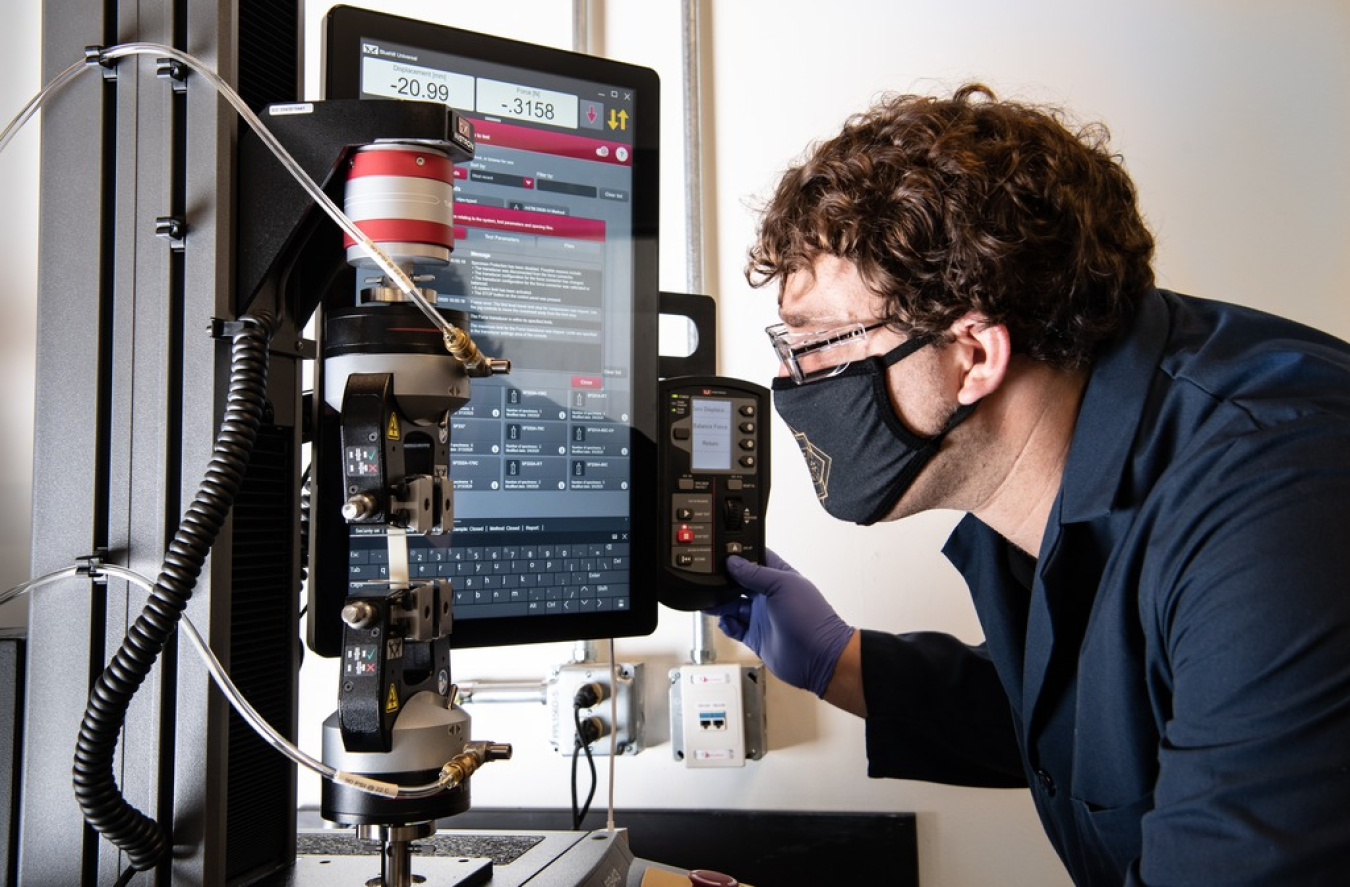The National Renewable Energy Laboratory has calculated and compiled benchmark data in support of the Department of Energy’s efforts to address plastics waste.
Industrial Technologies Office
February 11, 2021
An NREL researcher tests a sample of a new plastic formulation with the goal to redesign nylon polymers so they can be chemically recycled with more efficient and less energy-intensive processes. Photo by Dennis Schroeder, NREL
The National Renewable Energy Laboratory (NREL) has calculated and compiled benchmark data in support of the Department of Energy’s efforts to address plastics waste. These data provide a measurement at the supply chain level of how much energy is required and the amount of greenhouse gases emitted from the production of a variety of plastics in the United States. Researchers are developing new plastics and exploring new processes for plastics upcycling and recycling technologies and will use the data to compare their efforts to current manufacturing practices to determine if their efforts will be sustainable.
The estimates draw from a resource developed at NREL, the Materials Flows through Industry Supply Chain Modeling Tool. This tool tracks energy and material flows throughout the manufacturing supply chain to estimate energy requirements and greenhouse gas emissions.
Learn more about the research performed under the Bio-Optimized Technologies to keep Thermoplastics out of Landfills and the Environment (BOTTLE) Consortium, which is funded by the Advanced Manufacturing and Bioenergy Technologies Offices within the U.S. Department of Energy.

